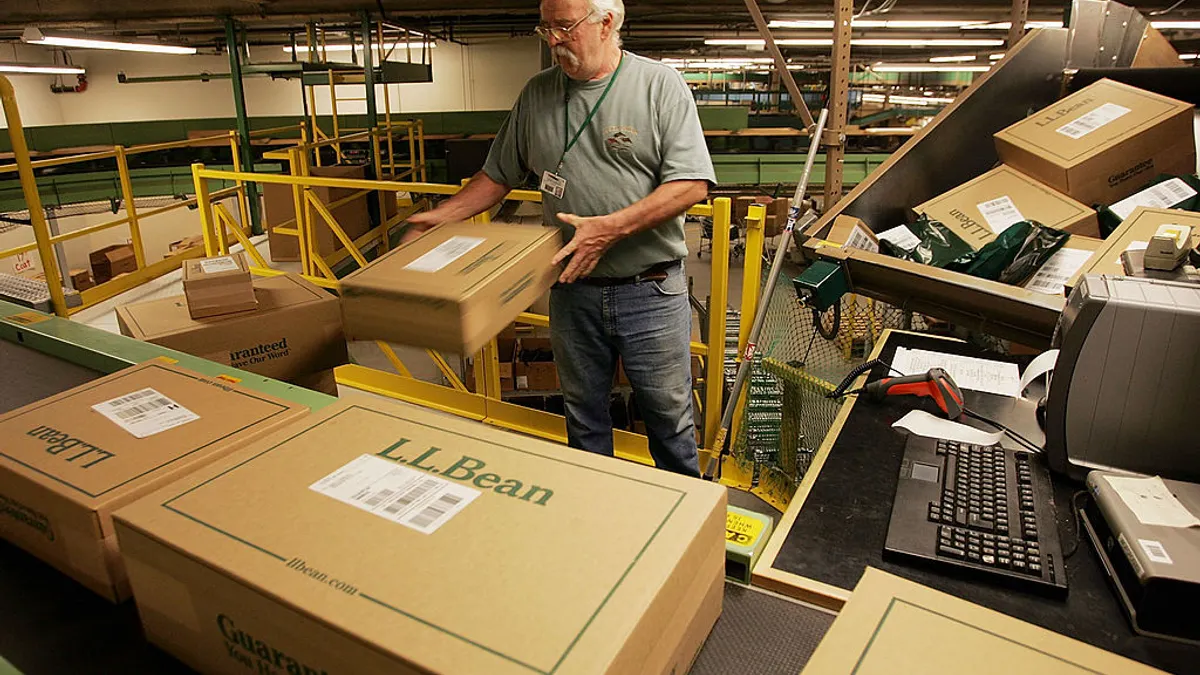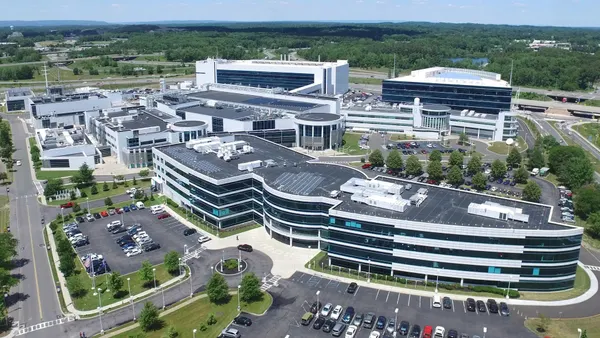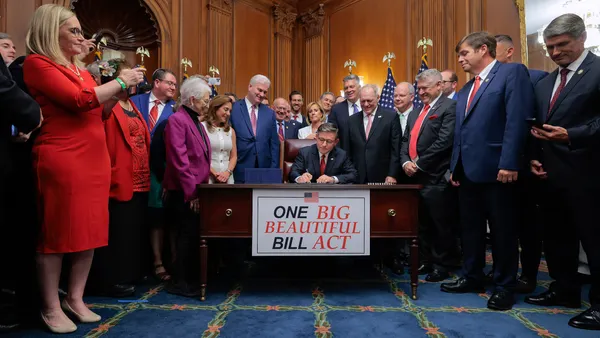Dive Brief:
-
The U.S. Department of Commerce has stopped funding 10 Manufacturing Extension Partnership programs as part of the Trump administration’s plan to reduce federal spending, according to lawmakers and partner members.
-
The National Institute for Standards and Technology division, which manages the MEP network, notified affected centers last week that their contracts would not be renewed after ending in late March. The program supports small and medium-sized U.S. manufacturers looking to grow or make operational improvements.
- The move impacted programs in Delaware, Hawaii, Iowa, Kansas, Maine, Mississippi, Nevada, New Mexico, North Dakota and Wyoming. It is also likely the first step in an effort to cut funding from programs in 40 other states and Puerto Rico when their contracts are up for renewal later this year, according to members of the House Committee on Science, Space, and Technology.
Dive Insight:
This is not the first time President Donald Trump has tried to cut MEP funding.
During Trump’s first term, his administration made multiple budget proposals seeking to eliminate nearly all MEP funds, which ranged between $130 million to $146 million each year, according to congressional data from fiscal years 2018 to 2021. However, Congress ultimately restored program funds each time.
This latest effort to simply not renew contracts has received backlash from lawmakers and shocked extension programs in several states, who claim the timing of the move goes against Trump’s strategy to restore U.S. manufacturing.
“You can’t claim to champion American manufacturers while simultaneously dismantling the very programs that help them survive and compete,” Rep. Grace Meng, of New York, said in a statement. New York’s next MEP funding renewal deadline is Jan. 1, 2026.
The MEP program, created in 1988, was signed into law by former President Ronald Reagan as part of the Omnibus Trade and Competitiveness Act. It has since been critical in helping stand up manufacturers for decades, recently supporting businesses looking to implement automation and artificial intelligence, as well as bolster supply chain resiliency.
In fiscal year 2024, the national network helped manufacturers achieve $15 billion in new or retained sales and $2.6 billion in cost savings, according to NIST. It also created or retained more than 108,000 jobs during the period.
However, critics have labeled MEP as “corporate welfare” for years, with the Trump administration arguing that the centers can get funding for their services from private entities and other sources.
NIST did not immediately respond to a request for comment regarding the contract renewals.
Mike O’Donnell, director of Iowa State University’s Center for Industrial Research and Service, which is part of the MEP network, updated clients about the unexpected cuts on Tuesday, saying they “will impact the availability and affordability” of the organization’s services for the foreseeable future.
“We are fortunate to have outstanding support from the State of Iowa and Iowa State University, along with other federal funding sources,” O’Donnell said. “Because of this support and our spectacular team, we expect to fulfill all our commitments and retain our staff.”
O’Donnell noted that MEP has been the largest federal funding source for the organization.
Meng raised potential issues with the administration’s decision to not renew the contracts. Last month, Congress appropriated $175 million for MEP, which Trump already signed into law, she said.
“Now his administration has told these centers that their work to support American small businesses and workers no longer aligns with his priorities,” Meng said. “Eliminating funding for the MEP program is not just wrong-headed — it’s clearly illegal.”
There are four more contract renewal deadlines for the remaining 41 centers: July 1, 2025; Oct. 1, 2025; Jan. 1, 2026; and March 12, 2026, according to the House Subcommittee on Research and Technology.
“Our manufacturers don’t need empty promises and chaotic tariffs that raise prices on the materials they use and the groceries that feed their families – they need practical support to keep up with rapidly evolving technologies and economic circumstances,” Meng said.













